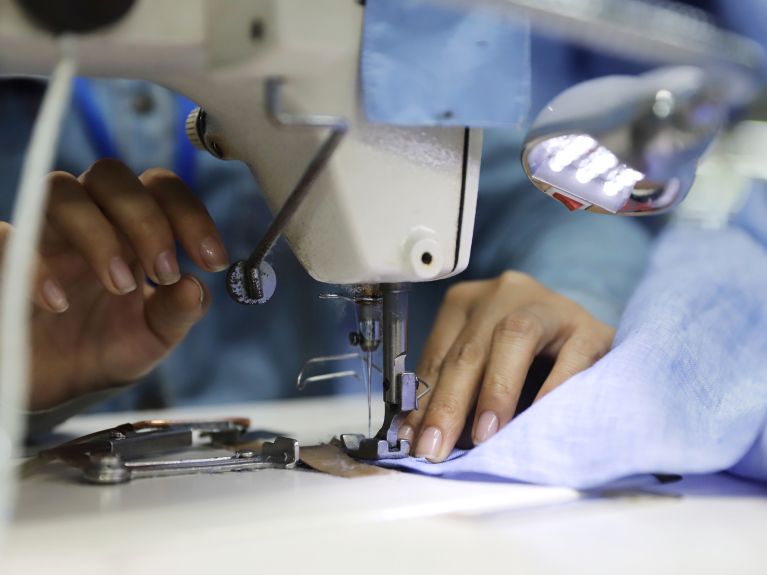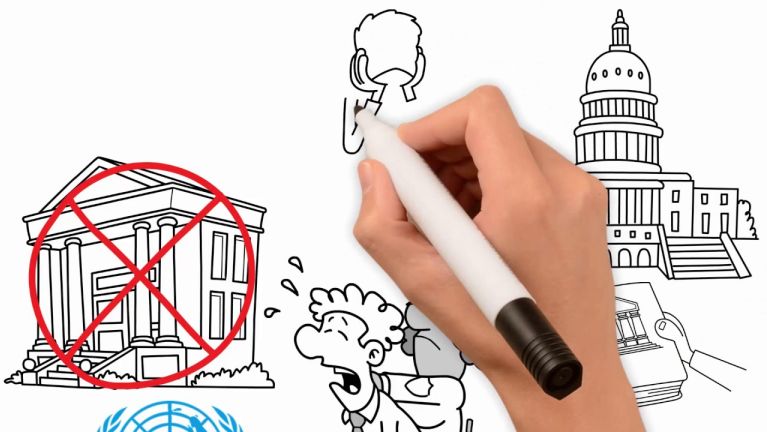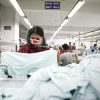The right to fair and safe work
Five years after Rana Plaza: how Germany is championing better social and environmental standards in the textile industry worldwide.

Germany. The collapse of the Rana Plaza textile factory in Bangladesh five years ago, with more 1,100 dead and nearly 2,500 injured, galvanized both the industry and policy-makers. How is Germany working for better social and environmental standards in the textile industry? Four questions and answers.
What has been Germany’s contribution to improving safety in textile factories?
Even before the disaster in Bangladesh, the Federal Government was seeking better working conditions and safety standards in garment factories via the German Society for International Cooperation (GIZ). However, for a long time, the big clothing companies were hesitant with their cooperation. The Partnership for Sustainable Textiles, initiated by German Development Minister Gerd Müller in 2014, aims to change this.
Dieses YouTube-Video kann in einem neuen Tab abgespielt werden
YouTube öffnenThird party content
We use YouTube to embed content that may collect data about your activity. Please review the details and accept the service to see this content.
Open consent formWhat impact has the Partnership for Sustainable Textiles had so far?
The approximately 150 members – companies, associations, relief organizations, unions and government – have set binding targets. And external experts are to examine whether they are met. It’s a question of appropriate working conditions, a living wage, a ban on child and forced labour, and safety and environmental standards, e.g. the ban on toxic chemicals. The companies are expected to disclose the subcontractors they work with. First successes are already visible. “The situation is no longer comparable to the time before Rana Plaza,” says Jürgen Janssen, head of the Partnership’s secretariat.
The situation is no longer comparable to the time before Rana Plaza.
Why is there also criticism of the Textile Partnership?
About 40 companies have left the Partnership. They say it involves too much work. They shy away from the required transparency, partly for reasons of competition. “The textile supply chain is still long and complicated,” says Janssen. “Price pressures, but also a lack of monitoring, certainly protect black sheep even today, especially among suppliers and subcontractors.” Critics of the Partnership say it is not resolute enough and that the participating companies’ market coverage is too low at 50 percent.
What is the National Action Plan for Business and Human Rights?
In response to working conditions in many textile factories, the Federal Government passed the National Action Plan for Business and Human Rights (NAP) in 2016. Companies should respect human rights – in Germany and worldwide among their suppliers and thus throughout the entire production chain. The aim is for at least half of all companies to have enshrined this in their processes by 2020. Critics welcome the plan, but miss a legal obligation to respect human rights.
Partnership for Sustainable Textiles

